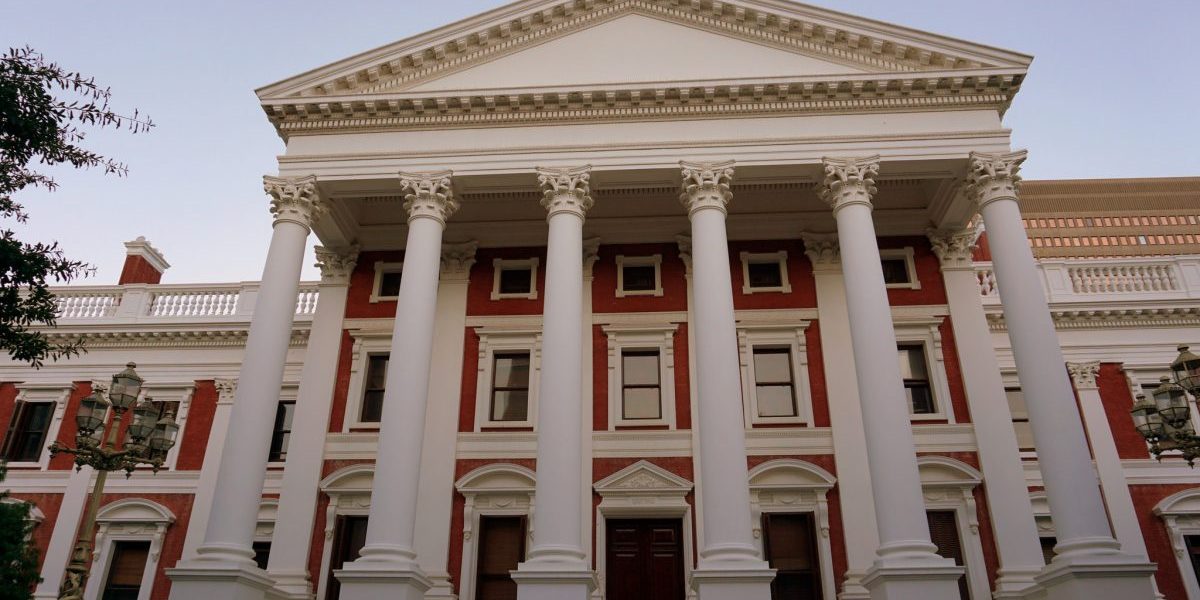Our constitution requires that the National Assembly facilitate public involvement in the legislative process and the work of committees. It has done this to an exemplary degree, yet the public is failing to exercise this constitutionally protected privilege, and not just from apathy but also because Parliament is increasingly irrelevant. Public faith and trust in this cornerstone of representative democracy has diminished to the point where Parliament needs to be scrapped in its current configuration or else fundamentally reconceptualised.
A starting point would be a national debate on the reasons for public faith in Parliament plummeting and what can be done to resuscitate belief in the institution. The hardest, yet most fundamental, shift required is in our thinking about what Parliament really ought to be doing, not just with respect to its pallid record of executive oversight but in its relationship with the electorate.
While Parliament’s constitutional oversight powers are considerable, for it effectively to hold the executive branch accountable presupposes the electorate itself holds the legislature accountable. It assumes a clear relationship between the people and their public representatives.
Yet the democratic deficit of the South African Parliament is that MPs are accountable principally to parties, not the people. This pathology can be addressed in a number of ways.
The first is electoral reform. The 1996 constitution merely requires that the electoral system should produce representation in Parliament in proportion to voting. While proportional representation tends to produce a more inclusive and fair electoral outcome, party-list systems galvanise party discipline and tend to diminish constituency linkages.
The South African electoral system has contributed to the growth of a yawning and dangerous void between MPs and the electorate which diminishes our democracy. It leaves the marginalised little choice but to by-pass Parliament by going to the streets, and it allows the powerful to avoid Cape Town and lobby directly in Pretoria and Sandton. For the health of our parliamentary democracy it is thus time to revisit the recommendations of the electoral task team chaired by Van Zyl Slabbert.
The majority recommendation of the task team was for SA to move to a mixed electoral system that would introduce multi-member, constituency-based voting to the current proportional representation party list system. This has the potential to better facilitate local democratic linkages and electoral accountability. Indeed, it may even produce MPs incentivised to act with the integrity and bravery on matters of principle and conscience, rather than as sycophantic manikins.
Beyond urgent electoral reform, however, the people need to exercise real power over their public representatives. One way of achieving this would be through the introduction of a social charter between publicly elected representative and the electorate. All prospective MPs should be required to sign a candidates’ charter. Failure to do so ought to preclude nomination and election. Failure to adhere to the provisions of the charter would trigger a constituency right of recall.
The charter ought to contain a set of basic iron-clad undertakings. MPs would be required to attend all sessions of Parliament, save for accepted labour law provisions. All candidates would undertake to conduct one public meeting before and after each parliamentary term. The preterm meeting would serve as a means of previewing the business of Parliament, including forthcoming bills and committee meetings. It would serve as a clear and democratic means of renewing the mandate from the electorate.
Four constituency clinics per term should be held to hear and consider concerns, complaints and proposals from constituents. All candidates would have to present themselves to an annual public meeting to give an account of their attendance and work in Parliament.
MPs would be required to publish and outline what they had achieved for their constituents and to set out their proposed programme for the forthcoming year. Further, candidate MPs should be required to publish and declare their direct and indirect interests and assets to their constituents. These should also be published on the parliamentary website. All flights and trips undertaken at public expense must be declared in a public register and accounted for at constituency level.
Finally, we need to thoroughly re-examine and enunciate the qualities we, not the party, seek in an MP. The founding 1994 election propelled candidates on to party lists on the basis of a host of qualities — ranging from their role in the liberation struggle, loyalty to party leadership and voter sex appeal. The ensuing 12 years have seen the steady haemorrhaging of talent out of Parliament. Some have been eased out by party leaders, others promoted to higher office and many more have caught the all-stations gravy train to self-enrichment.
Twelve years into our democracy it is time open a national discussion about every aspect of our MPs’ behaviour, character and qualities. This process will require all MPs themselves to place public service, ethics, professionalism and diligence at the core of their day-to-day activities, rather than milking the system and the rule book for all they’re worth.
To achieve this will require the South African public to rekindle the fire in the belly for democracy. It is time for the people to bring democracy back to Parliament.








